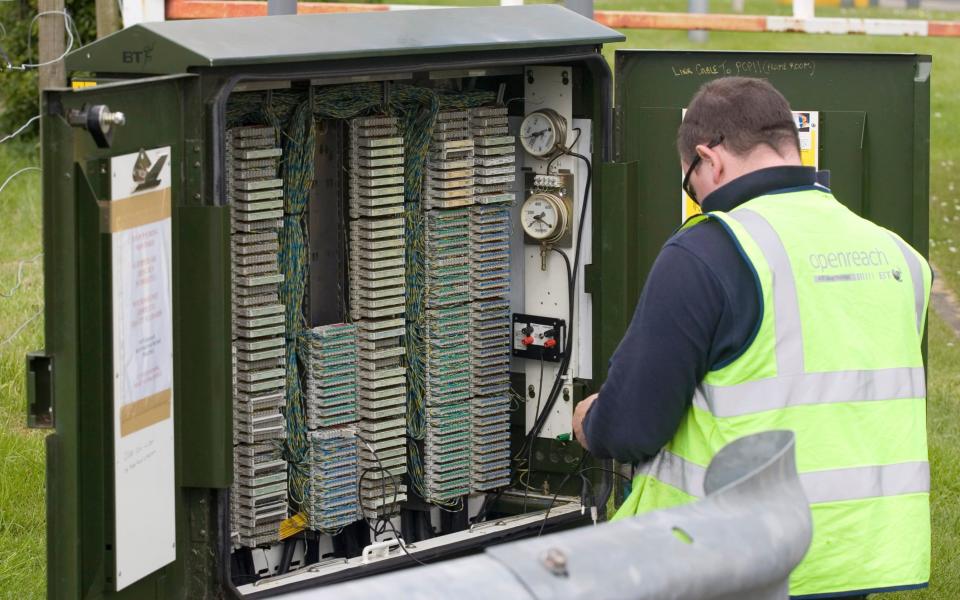Watchdog proposes instant compensation for poor broadband service

Broadband providers could be forced to pay out nearly £200m a year in compensation for slow repairs and missed appointments.
Under new proposals by telecoms watchdog Ofcom, landline and broadband customers would automatically receive money back from their provider without having to ask or go through a claims process.
The regulator said customers could receive up to £185m in compensation each year if their landline or broadband is not fixed quickly enough, is not working on the day it had been promised, or an engineer does not arrive at a scheduled appointment time.
Lindsey Fussell, Ofcom's consumer group director, said: "When a customer's landline or broadband goes wrong, that is frustrating enough without having to fight tooth and nail to get fair compensation from the provider.

"So we're proposing new rules to force providers to pay money back to customers automatically, whenever repairs or installations don't happen on time, or when people wait in for an engineer who doesn't turn up. This would mean customers are properly compensated, while providers will want to work harder to improve their service."
The amount of the compensation payments would be set by Ofcom, and would "reflect the degree of harm suffered by the consumers", the watchdog added.
The proposal applies to fixed broadband and landline telephone services only.
Ofcom analysis suggests there are nearly 6m cases of consumers losing their landline or broadband service every year, while engineers fail to turn up for around 250,000 appointments annually.
More than 1.3m people are affected each year by delays in their landline and broadband installations, with one in eight installations being delayed.
Currently, compensation payments are given on an ad-hoc basis, with Ofcom saying only a minority of those suffering problems receive payouts.
It added that financial compensation is paid out in just 1.1m cases, despite there being 7.2m instances each year where landline or broadband customers suffer delays or missed appointments.
Research from business internet service provider Beaming found that British businesses lost £7bn to internet outages in 2016, with more than three quarters of businesses experiencing at least one connectivity failure.
BT, Sky and Virgin Media have jointly put forward a draft proposal to introduce automatic compensation through a draft voluntary industry code of practice, but Ofcom said: "At this stage, we do not consider that this proposal sufficiently meets our concerns, when quality of service falls short."
The proposal would also benefit small and medium-sized businesses, Ofcom added, which often use residential broadband services. "Our research found that around half of SMEs (49pc) were uncertain of their rights when providers fell short," the watchdog said.
Matt Hancock, the minister of state for digital and culture, said: “Too many people are suffering from poor customer service when things go wrong with their broadband and phone lines.
"So getting a better deal for consumers is at the heart of our Digital Economy Bill, which strengthens Ofcom's power to make sure providers pay coompensation when service falls short. These changes will help make sure people are not cut off from friends, family and work for days on end, and are properly compensated if problems aren’t fixed quickly enough.”

 Yahoo Finance
Yahoo Finance 